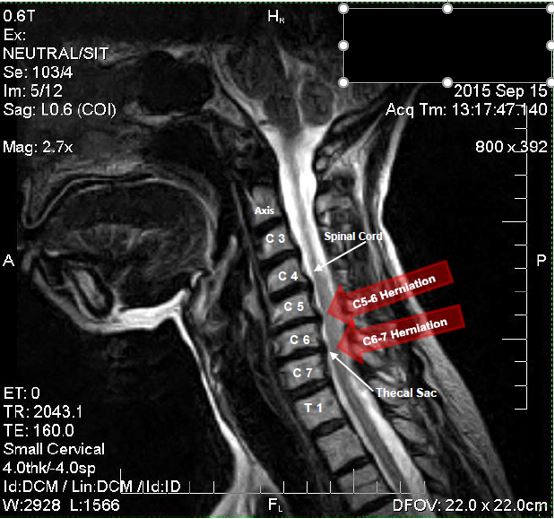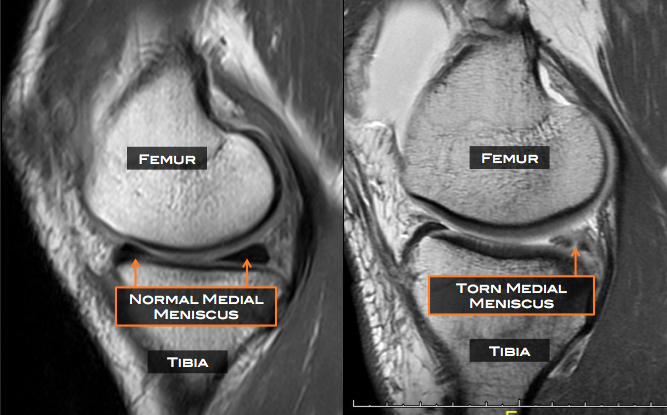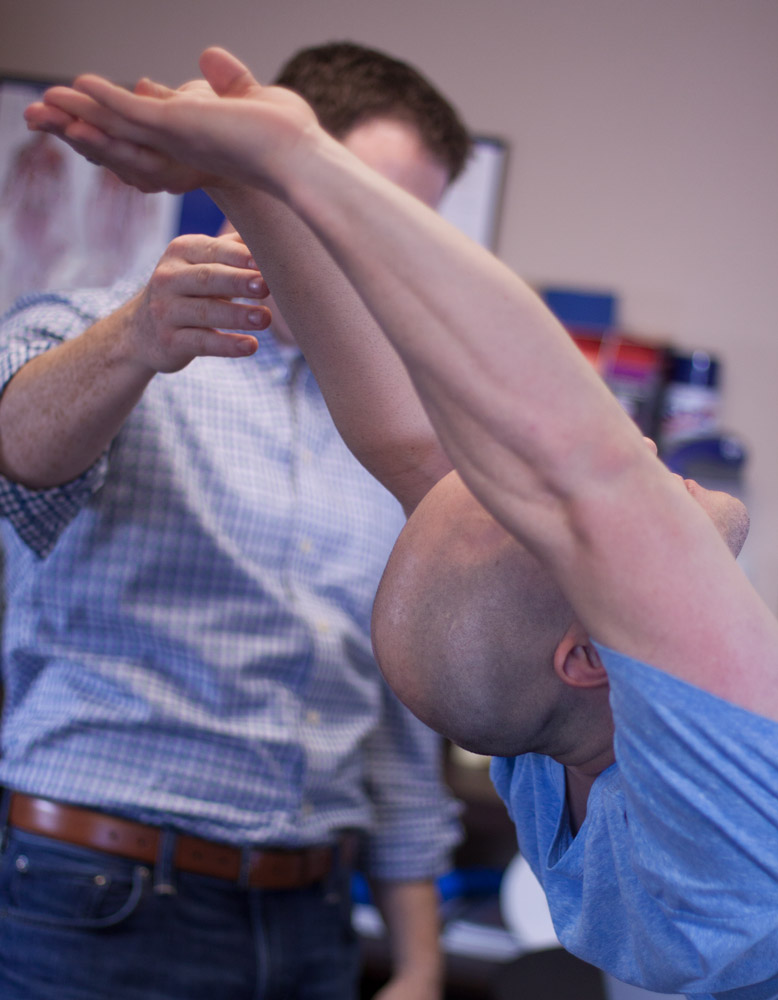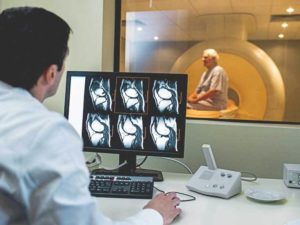A picture’s worth a thousand words… or is it? Neck pain preventing you from sitting? Shoulder pain with putting on your coat? Knee bothering you going up and down stairs? For an accurate diagnosis of these ailments, you may need an MRI…or do you?
 Magnetic resonance imaging, or MRI, was once thought to be the gold standard for diagnosing orthopedic conditions. MRIs utilize magnetic fields to produce images of targeted body structures. MRIs can show a detailed picture of joints, including bone, tendons, ligaments, discs, muscle, and cartilage.
Magnetic resonance imaging, or MRI, was once thought to be the gold standard for diagnosing orthopedic conditions. MRIs utilize magnetic fields to produce images of targeted body structures. MRIs can show a detailed picture of joints, including bone, tendons, ligaments, discs, muscle, and cartilage.
Over recent decades, the reliability of MRI results has been questioned. Studies looking at neck pain, shoulder pain, and knee pain have found that MRIs may not always diagnose the true “pain generator”. Although MRIs are very good at identifying structural abnormalities, just because these abnormalities exist does not mean they are the true source of pain.
A recent study assessed the MRI results of over 1,000 individuals WITHOUT neck pain. The purpose of this study was to determine the prevalence of abnormal MRI findings in an asymptomatic population. Low and behold, 87% of these individuals presented with disc bulging, despite reporting no symptoms. Knowing this, your recent MRI showing several herniated discs may not be cause for concern, as these structural abnormalities may have been present long before your neck pain commenced. The reason for your discomfort could be multi-factorial, which is not always identified on imaging.
 Another study looked into incidental meniscal tears in individuals with and without knee pain. It was concluded that 61% of individuals with confirmed mensical tears denied any knee pain or stiffness. Similar to the lower extremity, a study looking at the shoulder MRI results demonstrated comparable conclusions. This study looked at the prevalence of rotator cuff tears in asymptomatic overhead athletes. The study results showed that 40% of athletes had some form of rotator cuff tear WITHOUT associated pain or discomfort.
Another study looked into incidental meniscal tears in individuals with and without knee pain. It was concluded that 61% of individuals with confirmed mensical tears denied any knee pain or stiffness. Similar to the lower extremity, a study looking at the shoulder MRI results demonstrated comparable conclusions. This study looked at the prevalence of rotator cuff tears in asymptomatic overhead athletes. The study results showed that 40% of athletes had some form of rotator cuff tear WITHOUT associated pain or discomfort.
So, long story short, MRIs can be a beneficial TOOL to assess and diagnose orthopedic conditions; however, relying solely on MRI results for treatment options, specifically surgical interventions, is unadvised. Think of it this way, an MRI is a still an image of one instant in time. If someone looked at your family portrait, would they be able to tell much about your family dynamics? No, probably not. It would be necessary to observe how your family works over time to achieve a better understanding. Similarly, an MRI only provides a picture of your joints, muscles, tendons, and ligaments amongst other bodily tissues; to actually observe how someone moves can provide significantly more information regarding the reason for symptoms.
 A mechanical assessment of the way you move and how your body works together to function can help you determine the true source of your pain and what you can do to help it! As Physical Therapists, we are the movement experts. Our extensive training allows us to assess and breakdown movement patterns in ways that you would never be able to see on a simple image like an X-ray, MRI, or CT Scan. Looking at how your body moves together will reveal where the functional problems truly lie. Want to get better? Let’s stop making all of our decisions on imaging and start looking at how we move. Now GET MOVING!!
A mechanical assessment of the way you move and how your body works together to function can help you determine the true source of your pain and what you can do to help it! As Physical Therapists, we are the movement experts. Our extensive training allows us to assess and breakdown movement patterns in ways that you would never be able to see on a simple image like an X-ray, MRI, or CT Scan. Looking at how your body moves together will reveal where the functional problems truly lie. Want to get better? Let’s stop making all of our decisions on imaging and start looking at how we move. Now GET MOVING!!
 Julia Tranquillo, DPT is a licensed physical therapist who graduated with her Doctorate in Physical Therapy from Springfield College in 2016. Julia has a passion for treating orthopedic conditions and working with patients to get them back to their previous level of function. She has received her certification in the McKenzie Method of Mechanical Diagnosis and Therapy, which specializes in the treatment of low back/neck pain and other spinal conditions and is Certified in Trigger Point Dry Needling. Julia is a resident of Stratford and in her free time enjoys coaching and playing soccer and engaging in outdoor activities.
Julia Tranquillo, DPT is a licensed physical therapist who graduated with her Doctorate in Physical Therapy from Springfield College in 2016. Julia has a passion for treating orthopedic conditions and working with patients to get them back to their previous level of function. She has received her certification in the McKenzie Method of Mechanical Diagnosis and Therapy, which specializes in the treatment of low back/neck pain and other spinal conditions and is Certified in Trigger Point Dry Needling. Julia is a resident of Stratford and in her free time enjoys coaching and playing soccer and engaging in outdoor activities.
Tags:
- back pain
- CT Scan
- Disc Bulge
- Herniated Disc
- Imaging
- Meniscal Tear
- Movement
- MRI
- Pain
- physical therapy
- PT
- Rotator Cuff Tear
- X-ray


